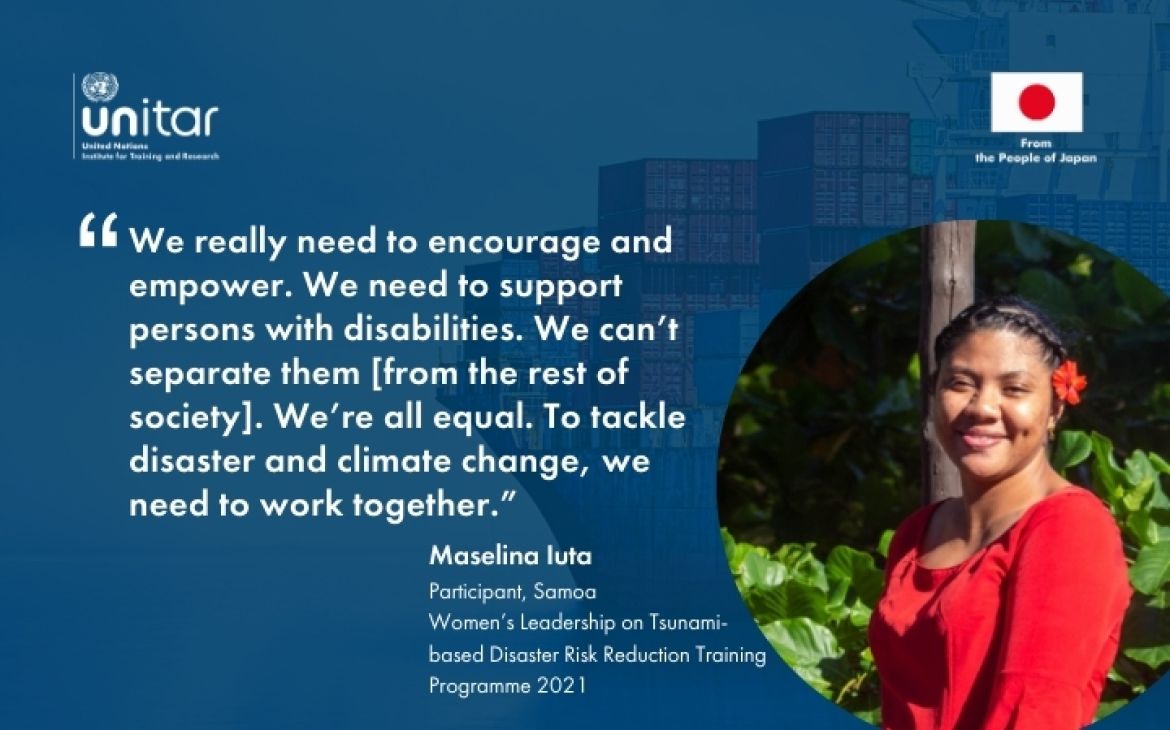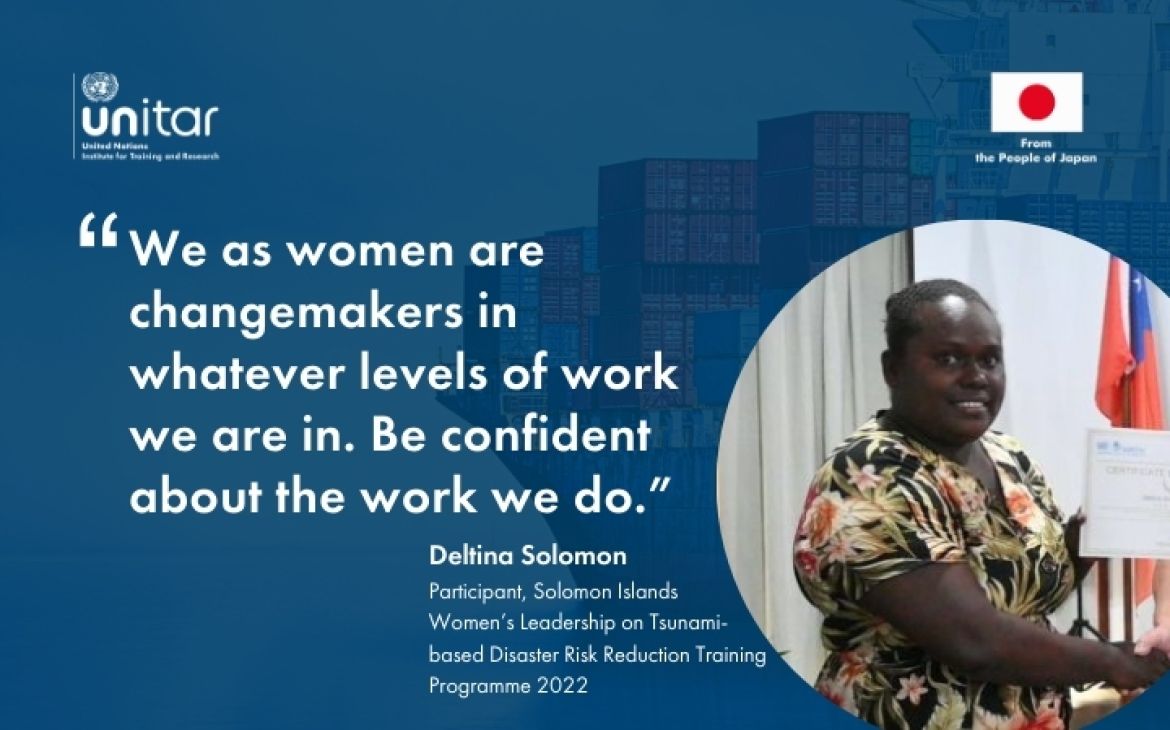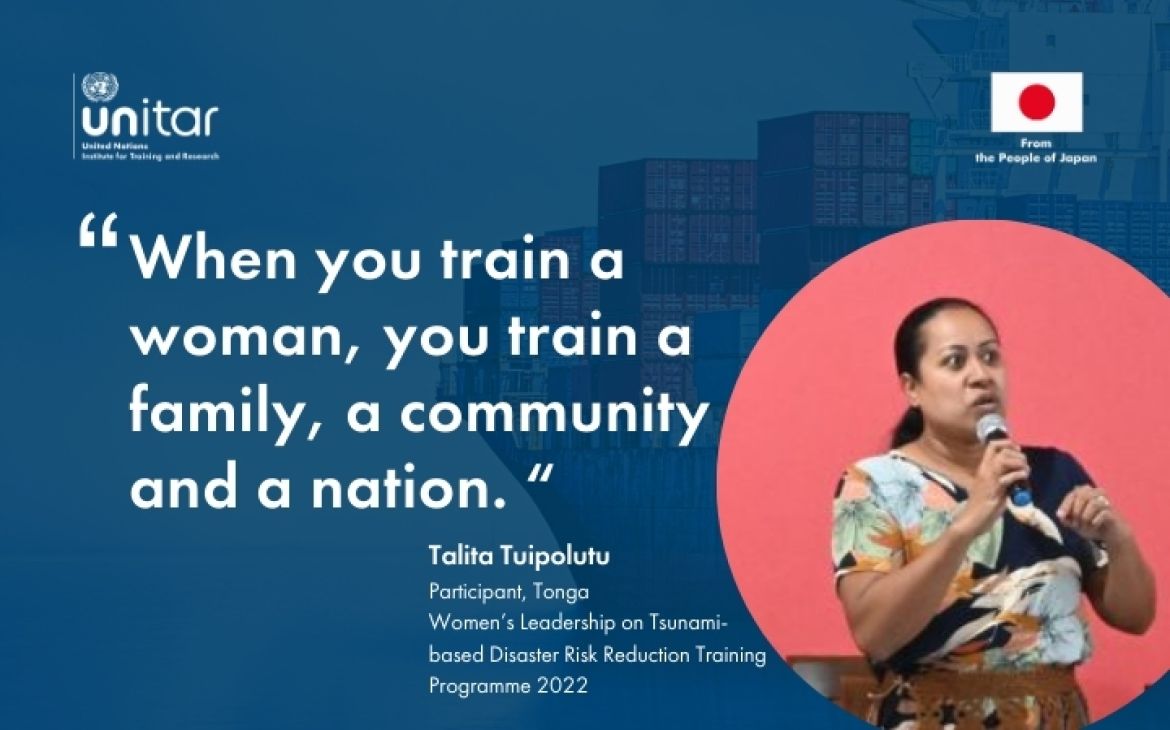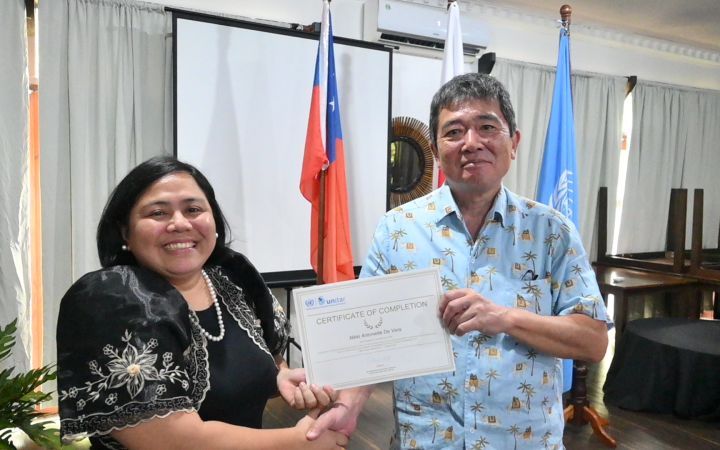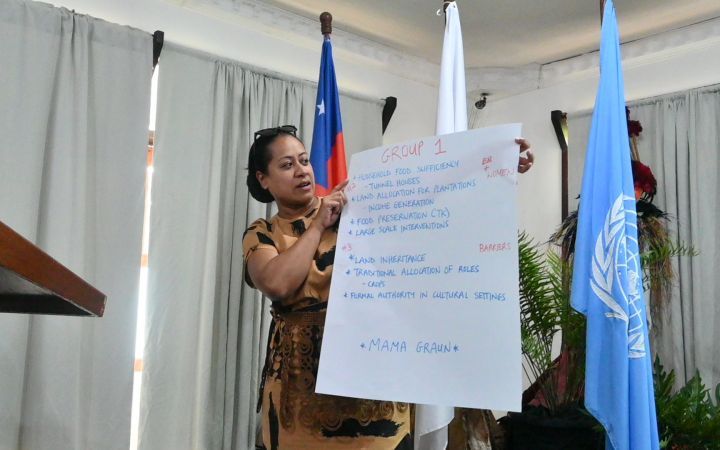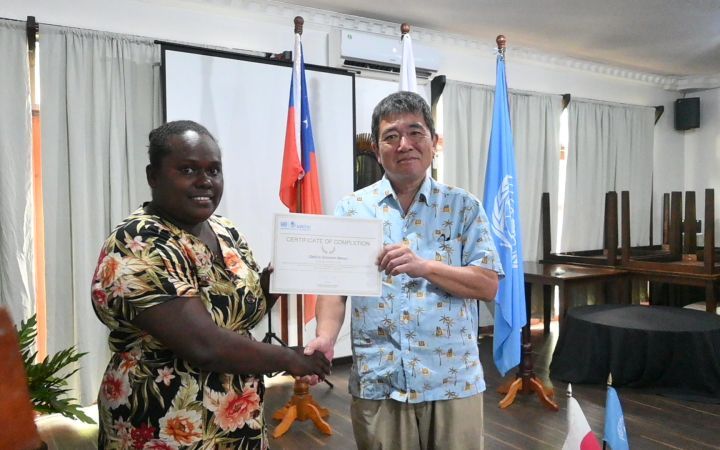The Pacific region is constantly under threat of earthquakes and tsunamis, and the devastation they bring is seared in our memories of disasters such as the 2011 Great East Japan earthquake and tsunami, the 2004 Indian Ocean earthquake and tsunami, and 2022 Hunga Tonga-Hunga Ha’apai volcanic eruption and tsunami.
In emergencies, people who are vulnerable become even more at risk. Women, in particular, are often responsible for other vulnerable people as caregivers, making it essential that women are part of decision-making and the designing and implementing of disaster preparedness.
The UNITAR Women’s Leadership in Tsunami-based Disaster Risk Reduction (DRR) Programme for World Tsunami Day seeks to empower professionals to help their countries and communities better prepare for, confront and recover from disasters. The programme focuses on the gender-specific capacities and vulnerabilities in communities, reflecting the all-of-society inclusive approach called for in the Sendai Framework for Disaster Risk Reduction.
It was my first time being exposed to disaster risk reduction principles and standards of what humanitarian actors are focused on, the Sustainable Development Goals within the government, how it connects and aligns to the Sendai Framework... that was my training and aha moment.”– Lavinia Taumoepeau-Latu, Tonga, Participant of Sea and Human Security Training Programme 2017
This programme is made possible by the long-standing support of the Government and People of Japan.
The 2024 round marks the 10th round of the UNITAR DRR Programme. This year’s programme is part of the Shimanami Collective, a series of training programmes to build resilience against disasters and to enhance sea and human security.
Programme Snapshot
Since 2016, over 500 leaders completed the programme, the majority of them women from the Pacific Islands.
Participants of the 2022 cycle hailed from Fiji, Indonesia, Papua New Guinea, the Philippines, Samoa, Tonga, and Vanuatu, as well as from Afghanistan, Germany, India, Jamaica, Kiribati, Pakistan, Solomon Islands, Trinidad and Tobago and Turkey.
Intended participants
Women living in or from Pacific Island countries and territories, as well as women from other regions and men working in disaster risk reduction, with a strong desire to make a difference in their society.
2024 programme (September 2024–March 2025)
- Phase I: Three months asynchronous online training
- Phase II: In-person workshop in the Pacific region for selected participants
News
- UNITAR Women’s Leadership in Disaster Risk Reduction 2025 Launches with Participants from Asia-Pacific and Beyond (22 September 2025)
- 17 Emerging Leaders from Asia-Pacific Advance Disaster Risk Reduction Skills: UNITAR Training Concludes with Workshop in Fiji (7 March 2025)
- UNITAR Launches 2024 “Women’s Leadership in Tsunami-based Disaster Risk Reduction” Programme (9 September 2024)
Meet Our Alumni
Nikki Antonette De Vera, from the Philippines, is an alum of the UNITAR Hiroshima Women’s Leadership in Tsunami-based Disaster Risk Reduction Training Programme for World Tsunami Awareness Day. Nikki participated in this programme in Samoa which enriched her perspective, emphasizing the importance of cultural heritage in disaster resilience.
Talita Tuipolutu, Tonga: Planning for Disasters with Community
Talita Tuipolutu, a communications coordinator for the Tonga Australia Support Platform, developed a stronger passion for disaster risk reduction after experiencing the devastation caused by cyclones, earthquake and tsunami in Tonga. She joined the 2022 UNITAR Hiroshima Women’s Leadership in Tsunami-based Disaster Risk Reduction Training Programme so she could help her community better prepare for future disasters.
Enhancing Women’s Leadership in Disaster Risk Reduction: Deltina Solomon, Solomon Islands
Deltina Solomon is a deputy project manager for two United Nations Development Programme (UNDP) disaster management projects in the Solomon Islands. She joined the 2022 UNITAR Hiroshima Women’s Leadership in Tsunami-based Disaster Risk Reduction Training Programme to enhance her work as a front-line officer in disaster risk reduction.



